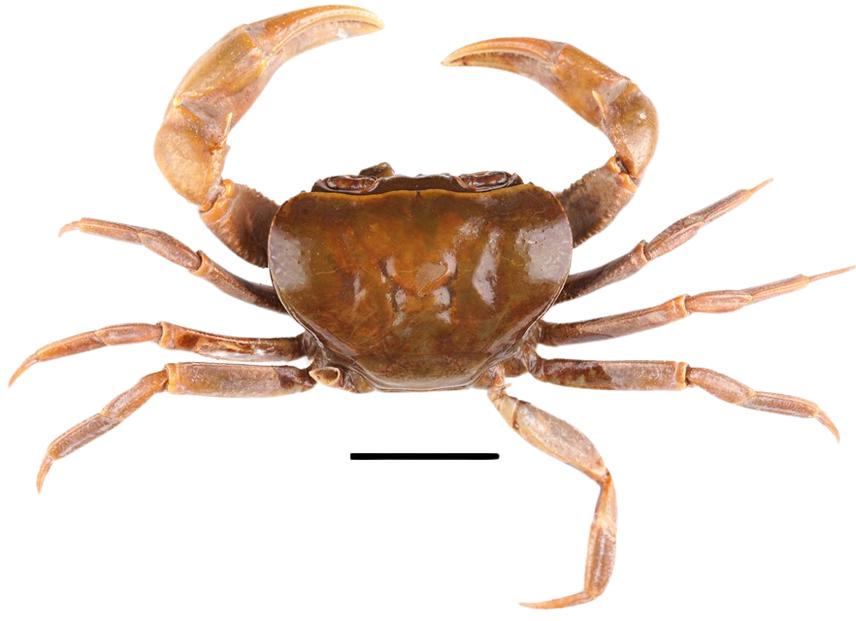Menye Ndongo Louise Charline
Mvogo Ndongo et al. (2024a,b) described a threatened freshwater crab Sudanonautes eyimba from specimens collected at Eyimba in the Mt. Nlonako Ecological Reserve in a pilot project funded by Rufford Small Grant Foundation and conducted by my research mentor Dr. Pierre A. Mvogo Ndongo. This threatened crab species is known only from Nlonako Ecological Reserve and its habitat is highly threatened from (1) habitat destruction, fragmentation and encroachment; (2) subsistence hunting for local food consumption of many different groups of animals including freshwater crabs and threatened amphibians; (3) the frequent use of agro-chemicals by the extensive coffee farms of the area that drain into the aquatic systems and poison fishes.

Photo of Sudanonautes eyimba. ©Dr. Pierre A. Mvogo Ndongo.
So far, several projects funded by the Rufford Small Grant have been conducted at Mt. Nlonako that have contributed to the reduction of human pressures on forest wetland ecosystems. However, conservation projects based on long-term studies of their population structure and reproductive biology are needed to collect first-time data for S. eyimba so as to assess its extinction risk using IUCN Red List protocols and protect this threatened crab species.
The current project focuses on gathering data on habitat requirements, population structure and reproductive cycle of Sudanonautes eyimba for the first time, needed to assess its extinction risk using the IUCN Red List protocols. Community training is planned to build awareness of conserving species and their habitats, to explain the benefits of intact ecosystems, and to involve the local population in the long-term management of their aquatic and forest resources.
This conservation project will not only benefit a threatened species, its impact will be felt beyond the field sites because of the explicit involvement of the local community in all aspects of this work (through education/capacity building efforts). This is because this project will also promote the awareness of the benefits of the value of intact ecosystems, and unique wildlife assets such as freshwater crabs, and the need for sustainable conservation measures to protect the rainforest ecosystems that they depend on. The wider public will participate in biodiversity conservation through NGOs, local communities and professional groups (such as farmers, foresters, and fishermen), and ecotourists and visiting scientists will bring in additional economic benefits to the community. All the scientific aspects for this project will be supervised by Dr. Pierre A. Mvogo Ndongo who has longstanding experience working on conservation and crab taxonomy using morphology and DNA sequencing to discover new species.